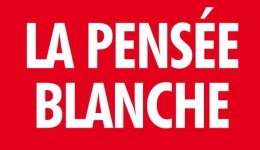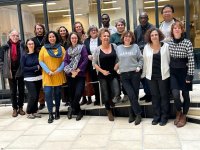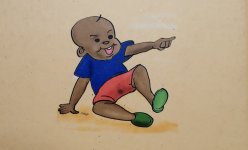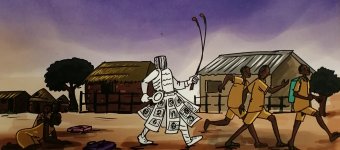
Grâce à un partenariat entre la Fondation Lilian Thuram - Éducation contre le racisme et l’Alliance internationale des éditeurs indépendants, 11 maisons d’édition en Afrique francophone coéditent La pensée blanche, publié initialement aux éditions Philippe Rey (France).
La pensée blanche est disponible dans les pays suivants : Algérie (Apic), Bénin (Ruisseaux d’Afrique), Burkina Faso (Sankofa & Gurli), Cameroun (Presses universitaires d’Afrique), Côte d’Ivoire (Éburnie), Gabon (Éditions Nstame), Guinée (Ganndal), Mali (Jamana), Maroc (Le Fennec), Sénégal (Papyrus d’Afrique), Togo (Graines de Pensées).
Date de parution : novembre 2023
Format : 14,5 X 22 cm ; 320 pages
Écoutez ici l’interview de Lilian Thuram dans le cadre du Salon international de l’édition indépendante en ligne, Babelica, le 20 septembre 2023.
Le livre
Qu’est-ce qu’être blanc ? Plus qu’une couleur de peau, n’est-ce pas plutôt une pensée ? Qui sont ceux qui l’ont inventée, et pourquoi ? Ce livre raconte l’histoire de la pensée blanche, son origine et son fonctionnement, la manière dont elle divise, comment elle s’est répandue à travers le monde au point d’être aujourd’hui universelle, jusqu’à infuser l’air que l’on respire. Depuis des siècles, la pensée blanche est une norme, la fossilisation de hiérarchies, de schémas de domination, d’habitudes qui nous sont imposées. Elle signifie aux Blancs et aux non-Blancs ce qu’ils doivent être, quelle est leur place. Comme la longue emprise des hommes sur les femmes, elle est profondément ancrée dans nos mentalités et agit au quotidien. Seule sa remise en question permettra d’avancer pour passer à autre chose. Il ne s’agit pas de culpabiliser ni d’accuser, mais de comprendre les mécanismes à l’œuvre, d’en prendre conscience pour construire de nouvelles solidarités. Le temps n’est-il pas venu d’élargir nos points de vue pour nous considérer tous enfin comme des êtres humains ?
Lilian Thuram est né en Guadeloupe en 1972. Il a créé en 2008 la fondation Éducation contre le racisme, pour l’égalité. Il est l’auteur de plusieurs ouvrages dont Mes étoiles noires (Philippe Rey, 2010, prix Seligmann contre le racisme ; coédition solidaire en Afrique francophone, Madagascar et Haïti, 2014), Manifeste pour l’égalité (Autrement, 2012) et Notre histoire (Delcourt, 2014 et 2016). Il a été commissaire général de l’exposition « Exhibitions. L’invention du sauvage », au musée du Quai-Branly en 2011. Prix de l’éthique de la Fondation Kéba-Mbaye au Sénégal en 2014, il est docteur honoris causa en sciences humaines des universités de Stockholm en Suède et de Stirling en Écosse. Dans une première vie, il a connu une carrière prestigieuse de footballeur international. Avec l’équipe de France, il a été Champion du monde en 1998 et Champion d’Europe en 2000.




























